The Nurture Science Program Team
The Nurture Science Program team includes diverse, world-class professionals among many disciplines, all dedicated to helping children and parents.
The team brings a multidisciplinary approach to developing, testing, and promoting nurture-based care – rooted in rigorous research – to help families establish and maintain emotional connection.
Learn more about the Nurture Science Program team below.
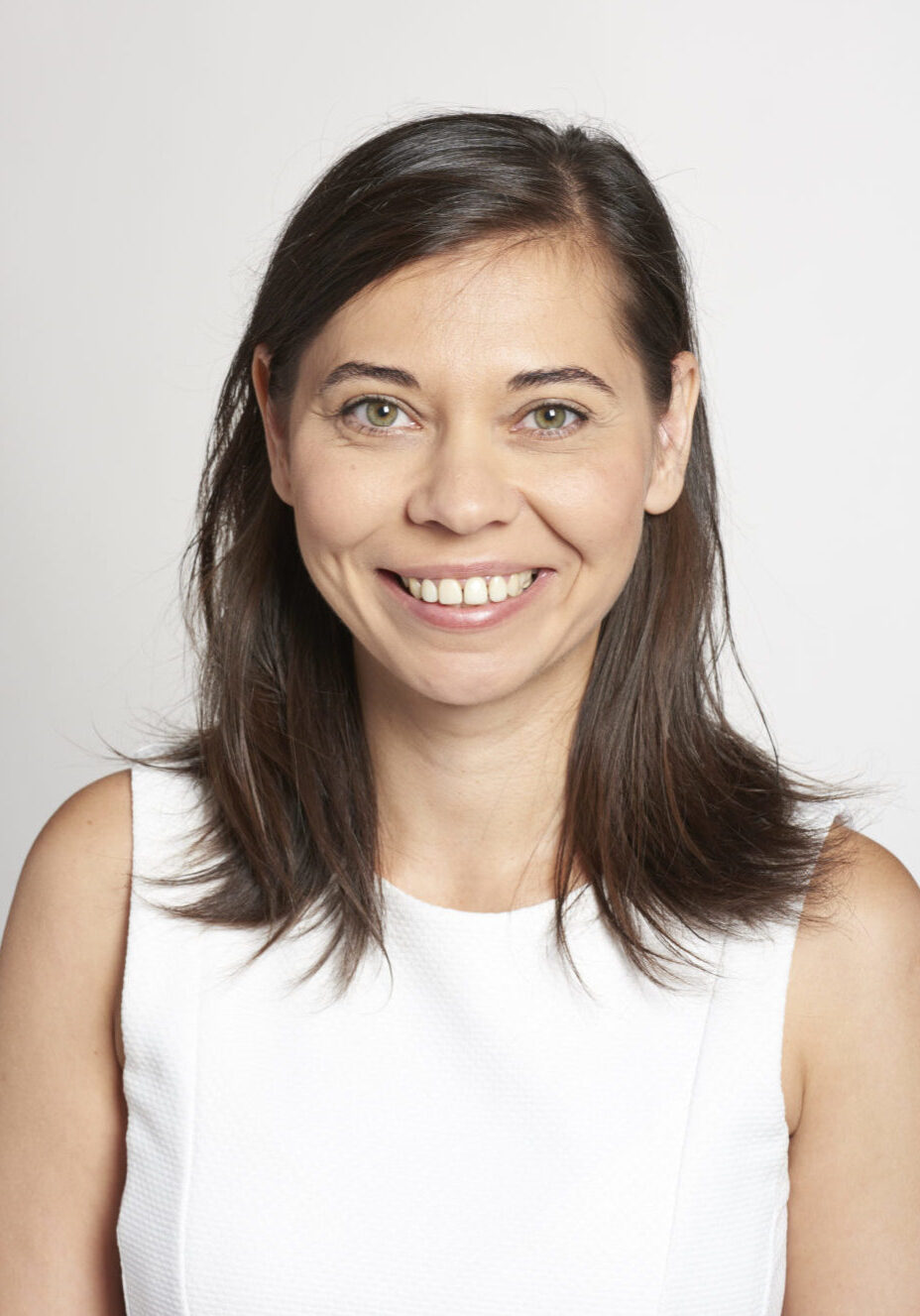
Dani Dumitriu, MD, PhD | Director
Dani Dumitriu, MD, PhD, is a board-certified pediatrician and neuroscientist. Her overarching goal is to spearhead "developmental neuroprevention," a new field dedicated to developing and implementing preventative methods for enhancing resilience in children. Dr. Dumitriu spends 20% of her time caring for newborns in the Well Baby Nursery at the Morgan Stanley Children's Hospital of New York. She dedicates the remainder of her time to researching the neurobiological basis for resilience both in her own lab (the DOOR lab, or the Developmental Origins Of Resilience lab), and as Director of the Nurture Science Program.

Martha G. Welch, MD, DFAPA | Founding Director Emeritus
Martha G. Welch, MD, DFAPA has been a pioneer in the treatment of emotional, behavioral, and developmental disorders for over 40 years. Decades of clinical observations led her to create a new paradigm that employs the primacy of co-regulatory vs. self-regulatory processes in optimal child development.
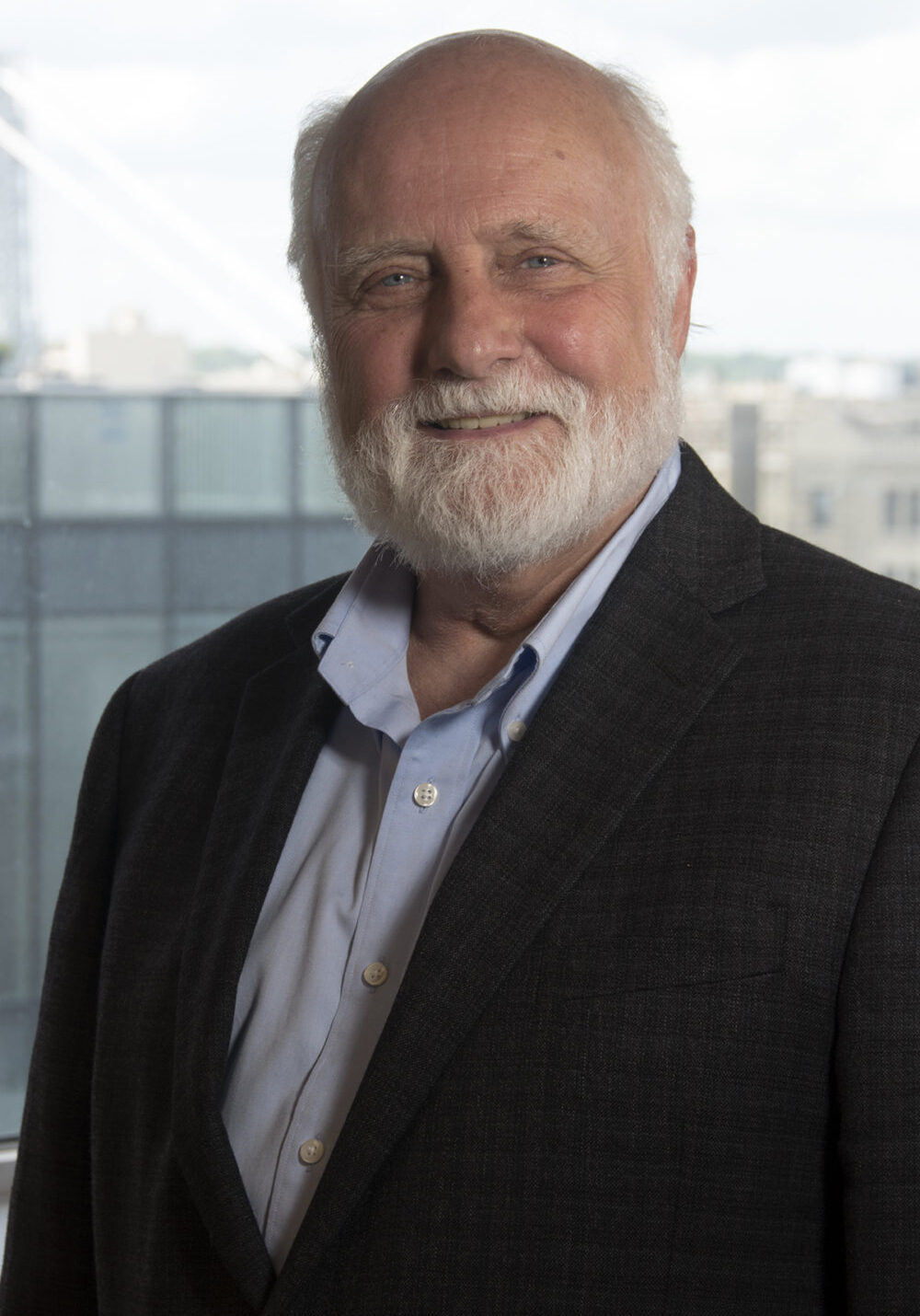
Michael M. Myers, PhD | Co-Director
Dr. Myers is Professor of Behavioral Biology in Psychiatry and Pediatrics at Columbia University Medical Center and former Research Chief of the Division of Developmental Neuroscience at the New York State Psychiatric Institute. As Co-Director, Dr. Myers brings extensive research expertise to the Nurture Science Program.

Robert Ludwig | Associate Director
Robert Ludwig has worked closely with Dr. Welch for the last 20 years, first managing her private treatment clinic and subsequently, her research program at Columbia University Medical Center. He is currently the Associate Director of the Nurture Science Program and is responsible for managing the research team and coordinating the research program. He also coordinates the Nurture Science Program’s domestic and foreign research collaborations outside Columbia Medical Center.
With an undergraduate degree in Philosophy, Mr. Ludwig has researched and worked out the theoretical aspects of Dr. Welch’s work and has been articulating the Calming Cycle Theory for Dr. Welch. In addition, he contributes to the design of research experiments and co-authors manuscripts for publication.
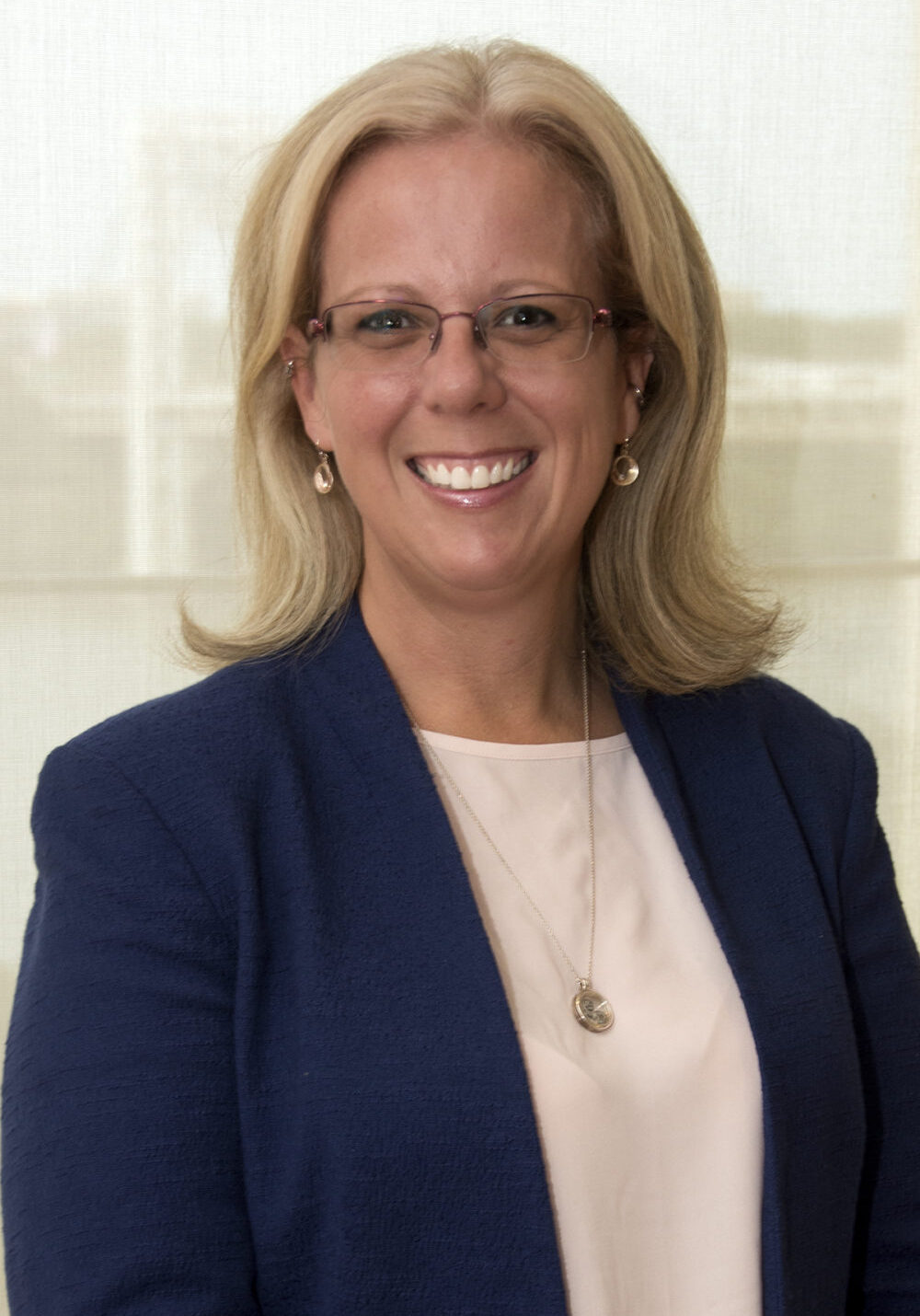
Amie Hane, PhD | Director of Behavioral Coding
Dr. Hane is a developmental psychologist and an expert in the coding of maternal and infants’ and children’s behaviors. Her research focuses on the social regulation of biobehavioral stress responding in infants and children. As Director of Behavioral Coding for the Nurture Science Program, she collaborates on the development of behavioral assessments and directs the human behavioral coding projects.
Dr. Hane’s work translates rodent epigenetic models of postnatal programming to human samples, and shows that high-quality maternal caregiving behavior buffers against dysregulated biobehavioral stress responding in infants and children.
Dr. Hane received her PhD in Applied Developmental Psychology from the University of Maryland, completed a postdoctoral fellowship in Infant Behavioral Neuroscience, and a fellowship in Infant-Parent Mental Health. She is an Associate Professor of Psychology at Williams College in Massachusetts, where she is a member of the faculty for the programs in Neuroscience and Public Health. Dr. Hane is also a Visiting Associate Professor of Clinical Psychology in the Developmental Neuroscience Division of the New York State Psychiatric Institute.

Myron A. Hofer, MD | Professor Emeritus of Developmental Psychobiology and Special Lecture in Psychiatry
Dr. Hofer is the Sackler Institute Professor Emeritus of Developmental Psychobiology and Special Lecturer in Psychiatry, as well as the founding director of the Sackler Institute for Developmental Psychobiology at Columbia University College of Physicians and Surgeons.
Dr. Hofer’s research interests are centered on the role of parent-infant relationships as a major environmental influence on postnatal development. Working with animal models over many years, he discovered specific behavioral interactions within the early mother-infant relationship that exerted short- and long-term effects on infant physiology and behavior. He and his colleagues showed that prolonged early maternal separation resulted in significantly increased vulnerability to stress in adults and to laboratory models of diseases such as gastric stress ulcers and hypertension in adult life. Dr. Hofer contributes his years of experience and insight in weekly team meetings centered around Dr. Welch’s ongoing clinical studies designed to reduce the long-term developmental effects of the prolonged early maternal separation of preemies inherent in the NICU.
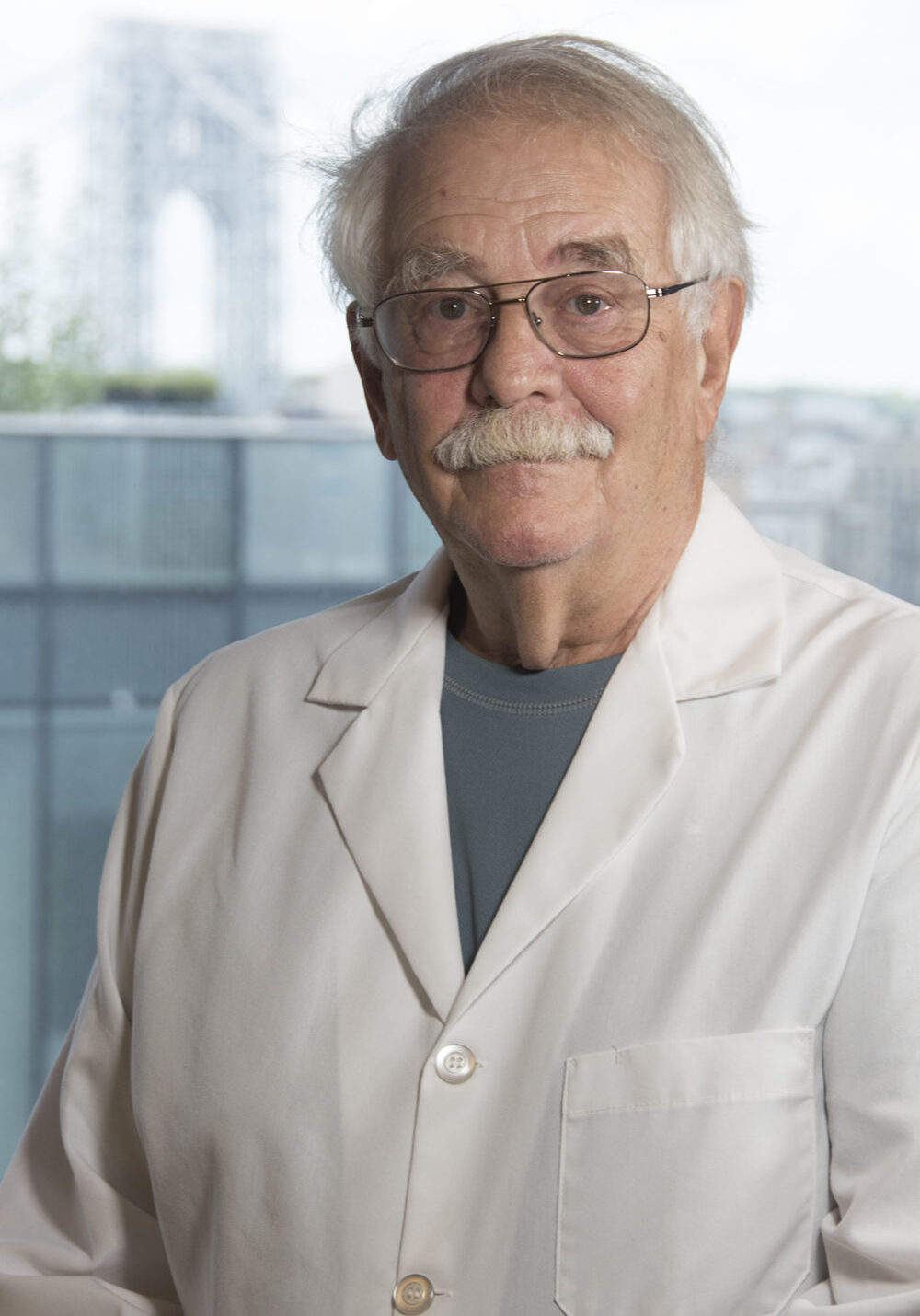
Raymond I. Stark, MD
Dr. Stark is a Professor of Pediatrics and Perinatology in Obstetrics and Gynecology in the Division of Neonatology at Columbia University Medical Center. He is also a retired Attending Physician in Neonatology at the Morgan Stanley Children’s Hospital of New York-Presbyterian.
In his animal work, Dr. Stark has studied the fetal baboon response to controlled maternal hypoxia and its effects on cardiorespiratory control. In his collaboration with the Nurture Science Program, Dr. Stark advises on study design and method. Dr. Stark brings years of clinical and translational experience to the research team, providing insights on patient care, sleep studies, and EEGs.
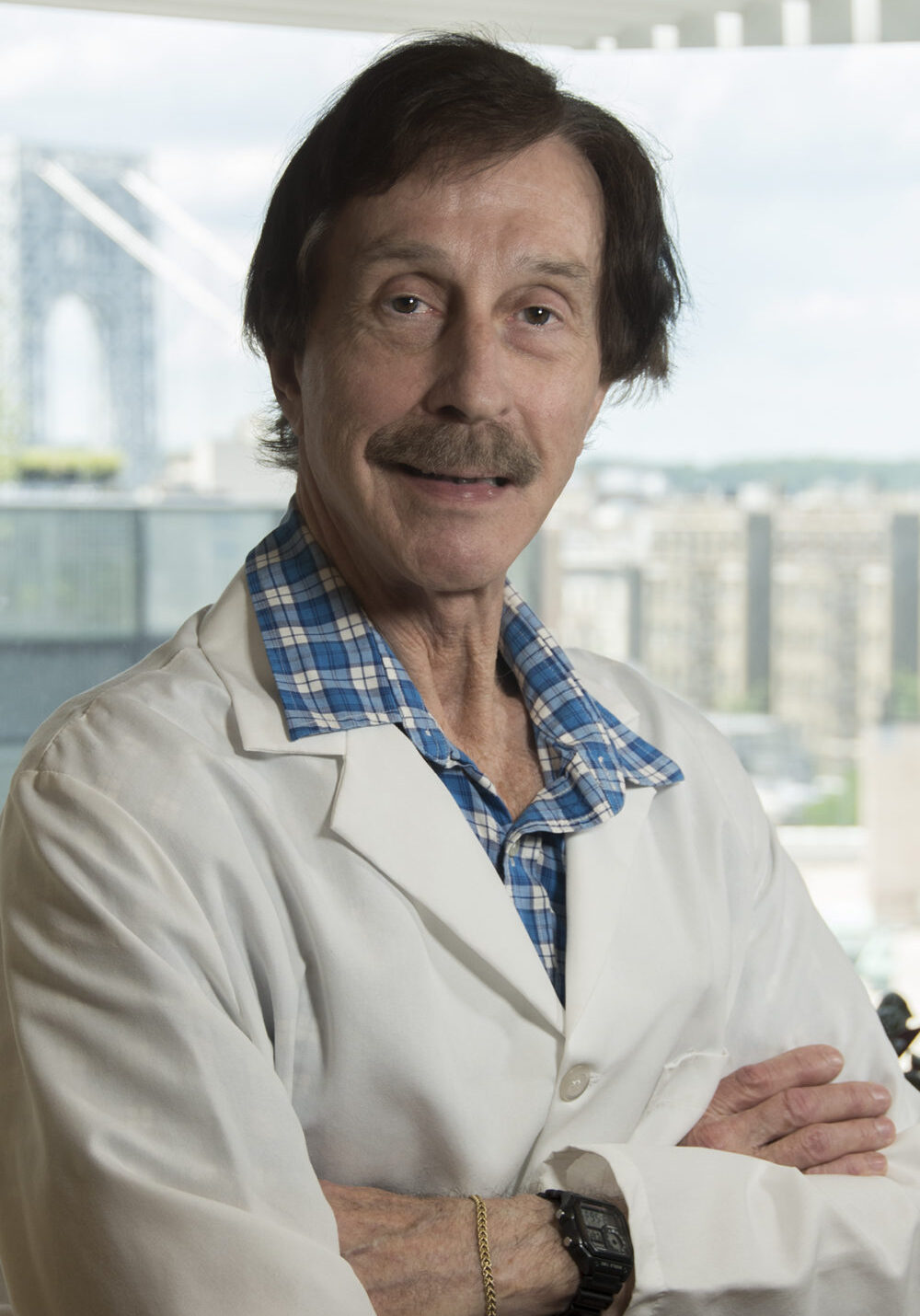
Philip G. Grieve, PhD
Dr. Grieve is an Assistant Professor of Clinical Biomedical Engineering (in Pediatrics). In his collaboration with the Nurture Science Program, Dr. Grieve focuses on developmental electrophysiology through the collection and processing of high density (128 lead) EEG.
Dr. Grieve’s work is focused on the differences in the development of brain function between extremely premature and term infants and their relationship to perinatal risk for poor neurodevelopmental outcomes.
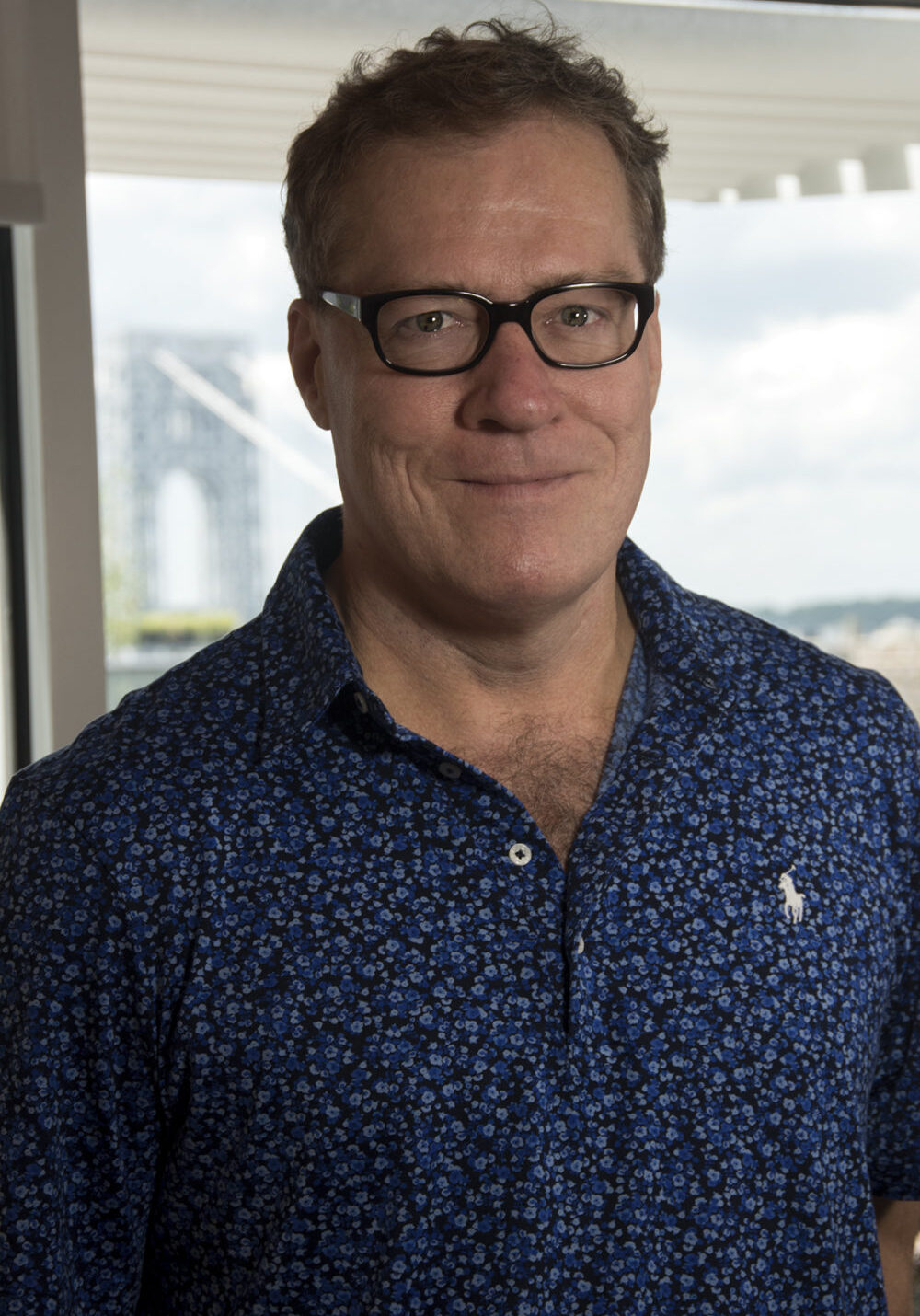
Joseph R. Isler, PhD
Dr. Isler is an Associate Research Scientist in the Department of Pediatrics. He has had a varied career, first as an academic physicist and then in commercial software development, before being trained in developmental neuroscience 10 years ago in the Department of Developmental Psychobiology at Columbia University College of Physicians and Surgeons.
His research interests include neural systems dynamics, especially in at-risk pediatric populations; development of novel techniques in EEG and ERP data analysis; and the perinatal development of the waking state and consciousness. Recently he has taken a lead role in the management and analysis of a massive trove of continuous physiological data from all of the NICU bedside monitors in the Morgan Stanley Children’s Hospital of New York-Presbyterian. He is very enthusiastic to be involved in the Nurture Science Program, having worked with this extraordinarily collegial group of diverse and highly talented colleagues for the past several years.

Howard F. Andrews, PhD
Dr. Andrews is Director of the Data Coordinating Center (DCC) at New York State Psychiatric Institute and Columbia University Mailman School of Public Health.
The DCC develops and implements web-based data capture and management systems for many large-scale clinical trials and epidemiological studies at Columbia University Medical Center, including research conducted by the Nurture Science Program, the Center for Children’s Environmental Health, and the Alzheimer’s Disease Research Center. Dr. Andrews is an expert in the management and analysis of large data sets and multi-level data.

Judy Austin, PhD
Dr. Austin began her professional training as an experimental psychologist focusing on research methods, study design, and data analysis.
At the Southern African Medical Research Council, Dr. Austin was a co-investigator on two cluster-randomized controlled trials of a behavioral intervention to increase treatment adherence among ambulatory tuberculosis patients: one in an endemic urban setting and the other in a rural farm setting. She then served in a tenured position at the School of Psychology, University of Natal, where she lectured in Statistics and, together with fellow faculty, co-authored a textbook, Numbers, Hypotheses and Conclusions: A Course in Statistics for the Social Sciences, published in 2002. Dr. Austin has consulted widely on statistical analysis in mental health, infectious disease, and reproductive health research, and serves as a reviewer for numerous international journals. Following a training fellowship in epidemiology at Columbia University, she focused on the development of sustainable monitoring and evaluation systems for public health services in low resource settings. Dr. Austin conducts database design, management, and maintenance and performs statistical analyses for all studies within the Nurture Science Program.

Joy V. Browne, PhD, RN
Dr. Browne is a Clinical Professor of Pediatrics at the University of Colorado School of Medicine, Department of Pediatrics and Psychiatry, and Director of the Center for Family and Infant Interaction. Dr. Browne graduated with a Ph.D. and M.S. from the University of New Mexico with a specialty in developmental and health psychology.
She also has a B.S.N. and M.S.N. from the Medical College of Georgia with a specialty in maternal-child nursing. She also holds a Diploma from Georgia Baptist Hospital College of Nursing. Dr. Browne directs the Colorado Newborn Individualized Developmental Care and Assessment Program Training Center, the Family Infant Relationship Support Training, the Fragile Infant Feeding Institute and the BABIES and PreSTEPS programs. Her area of expertise is neurobehavioral assessment and intervention with high-risk infants and their families, especially as they transition from intensive care to the community, and infant and early childhood mental health. She consults nationally and internationally on systems change toward developmentally supportive and family-centered care. Dr. Browne plays a key role in the dissemination of the Nurture Science Program’s Family Nurture Intervention.
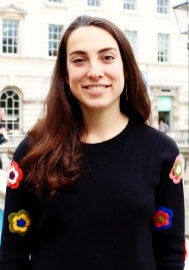
Elizabeth Markowitz, MSc
Elizabeth Markowitz is a research consultant for the Nurture Science Program. She is currently writing papers documenting our preschool-aged studies in Connecticut. Previously, Elizabeth worked as an NSP Research Coordinator directing our Connecticut studies. She earned her MSc in Medical Anthropology from University College London, and is currently pursuing post-baccalaureate premedical studies at Goucher College.

David Rubenstein, MD
Dr. Rubenstein, a consultant for the Nurture Science Program, is a Professor of Pediatrics at Columbia University Medical Center. Since arriving at Columbia University, he has served as Medical Director for the Neonatal Intensive Care Unit, as Fellowship Program Director, and as Vice Chair of the Division of Neonatal Medicine.
He has worked with neonates hospitalized at New York-Presbyterian Hospital, Columbia Campus since 1998. Prior to this appointment, he was a tenured Professor in Pediatrics and Associate Professor in Physiology at Temple University Health Sciences Center and St. Christopher’s Hospital for Children. He has served as a Director of the Division of Neonatal Medicine at Temple University and Vice Chair, Department of Pediatrics at St. Christopher’s Children’s Hospital, as well as Fellowship Training Program Director and Director of the Neonatal Intensive Care Unit at St. Christopher’s. His research interests were studying perfluoro chemical liquids as a respiratory medium in preterm lambs.

Muhammed Anwar, MS
Mr. Anwar is a senior lab scientist with over 35 years of experience working with lab species including goldfish, rodents, dogs, cats, monkeys, and pigs.
Mr. Anwar performs all aspects of Nurture Science Program basic research, including blood draws, tissue cultures, perfusions, post-mortem excisions, and tissue processing. He has experience with immunocytochemistry and viral protocols. Students in the Nurture Science Program benefit from his extensive knowledge and experience, as well as from his strong mentoring. Mr. Anwar has been an integral part of our basic science program for nearly 20 years.

Michael D. Gershon, MD
Dr. Gershon is a professor in the Department of Pathology and Cell Biology, the former Chair of Anatomy & Cell Biology at Columbia University Medical Center, and author of The Second Brain.
Dr. Gershon has devoted his career to understanding how the nervous system controls the behavior of the bowel. His 30 years of research have led to the extraordinary discovery that nerve cells within the gut act in a brain-like fashion to regulate gastrointestinal activity. His work has led to radical new understandings of a wide range of gastrointestinal problems. Dr. Gershon was an early collaborator with Dr. Welch, serving as co-director of the BrainGut Initiative. With Dr. Welch, Dr. Gershon discovered that intestinal nerve cells produce the nurture hormone, oxytocin, which helps to keep gastrointestinal inflammation from getting out of hand and ameliorates the adverse effects of prematurity on the gut. Dr. Gershon continues to work with the Nurture Science Program, helping to design experiments that study the effects of the molecules of nurture on brain-gut interaction during development.

Benjamin Y Klein MD, PhD
Dr. Klein is an expert in protein chemistry and cell and molecular biology. He is interested in the study of symbiotic mother-infant nurture interaction as it relates to disease prevention.
In collaborating with the Nurture Science Program, he aims to look at breastfeeding between mother and newborn at the molecular level. He is particularly interested in the role of breast milk in tumor suppression processes in the mammary gland, and in doing so studies peptides, such as oxytocin, which are secreted in the milk that find their way to gut epithelium. He is interested in looking at these signals in the gut and in the brain as a mechanism to elucidate mental and physical development of the infant.

Hadassah Tamir, PhD
Dr. Tamir works in the departments of Pathology and Cell Biology and Psychiatry. Dr. Tamir has a long-standing interest in the mechanism of storage and secretion of biogenic amines and in particular serotonin (5-HT).
Together with Dr. Gershon, she has been studying the parafollicular cells of the thyroid as a model of serotonergic neurons. More recently, Dr. Tamir has studied signal transduction pathways downstream of the 5-HT1A receptor. Dr. Tamir’s research has led her to be greatly interested in testing the activity of the peptide oxytocin on its receptors in the gut and finding the transduction pathways that may be activated. Dr. Tamir has been a valuable mentor to Dr. Welch for the past 15 years.

Mary Ann Austin, LCSW
Mary Ann Austin is a Nurture Specialist and licensed clinical social worker. She has worked with Dr. Martha Welch for nearly 40 years, primarily with mothering groups and multiple family groups.
Mary Ann has many years of experience as a pediatric social worker at the Pediatric Clinic at Stamford Hospital and the Norwalk Community Health Center. She was also the Southwest Connecticut Regional Social Work Coordinator for Children and Youth with Special Healthcare Needs. Currently, she works on the Connecticut study for Preschool Family Nurture Intervention (FNI).

Mary McKiernan, RNC
Mary is a Nurture Specialist with the Nurture Science Program. Previously, Mary worked as a certified registered nurse in the Neonatal ICU at Children’s Hospital of New York for over 20 years.
She also has experience working with special needs children in the home care setting. Mary facilitates Family Nurture Intervention, and helps collect medical data, both with families in the NICU and preschool-aged children enrolled in other Nurture Science Program’s studies.

Beatriz Preter, LCSW
Beatriz Preter is a Nurture Specialist and a licensed clinical social worker, supporting the Connecticut study for Preschool Family Nurture Intervention (FNI).
She actively recruits families to be part of the study and facilitates the group sessions. She also translates all necessary documents from English to Spanish.
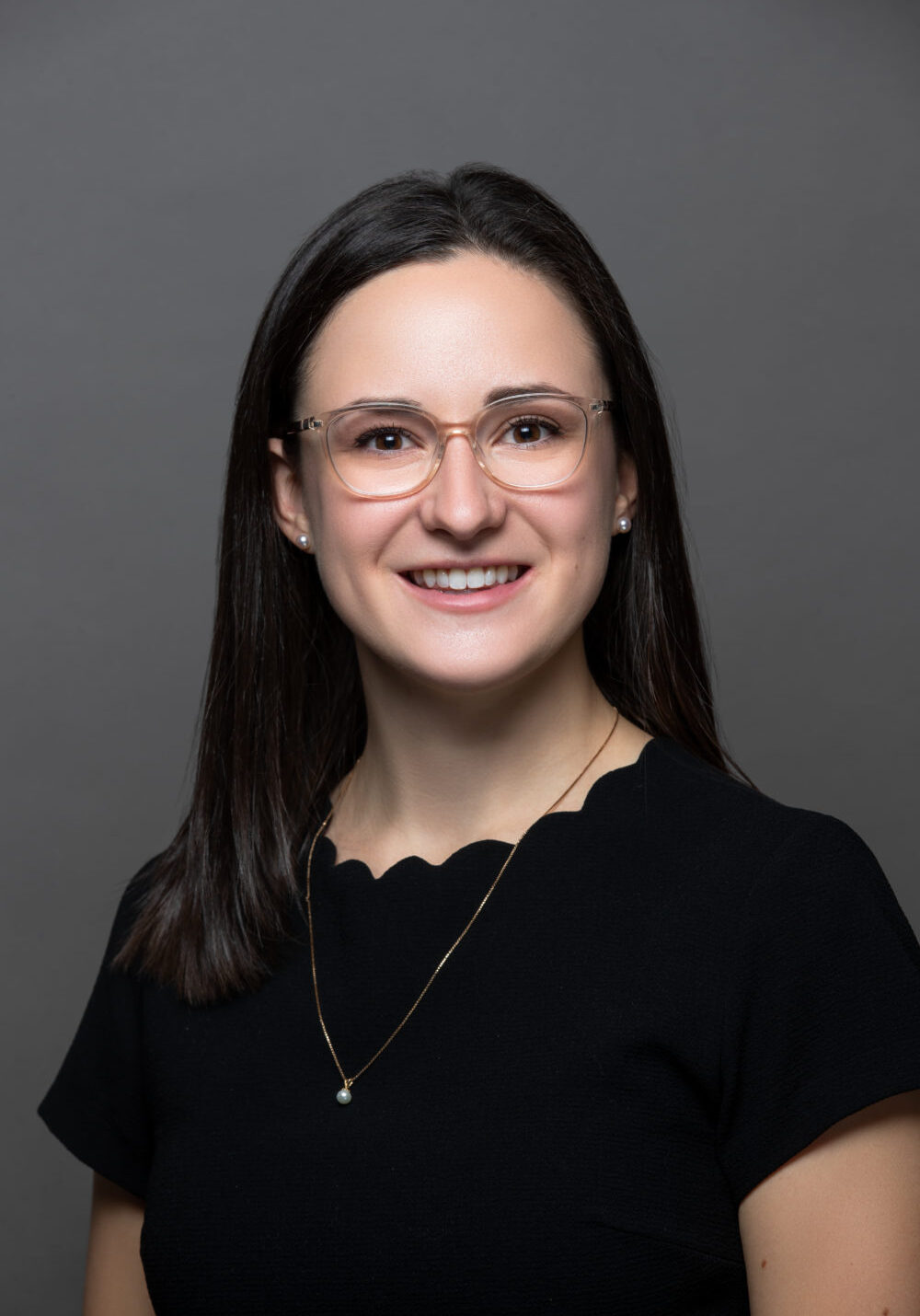
Andréane Lavallée, RN, PhD
Andréane Lavallée is the Nurture Science Program’s Postdoctoral Research Fellow. She earned a fellowship from the Canadian Institutes of Health Research to support her work at NSP. Andréane holds a Bachelor of Science and a PhD in Nursing from the University of Montreal in Canada. Her work focuses primarily on the translation and implementation of evidence-based interventions for promoting optimal newborn care and early relational health.
Prior to joining NSP, Andréane also cared for newborns in a level III neonatal intensive care unit.
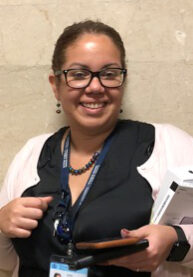
Leinne Ramirez Tamarez, BBA
Leinne Ramirez Tamarez is the Nurture Science Program’s administrative coordinator. She is responsible for the day-to-day business of the program.
Prior to joining the NSP, Leinne worked in Columbia University’s Mailman School of Public Health in various positions in the Department of Population and Family Health: as a Module Secretary, Program Coordinator, and Executive Assistant. Before that, she assisted the Director of Paterson Day Care 100, a universal pre-k for 3- and 4-year-olds, in New Jersey.
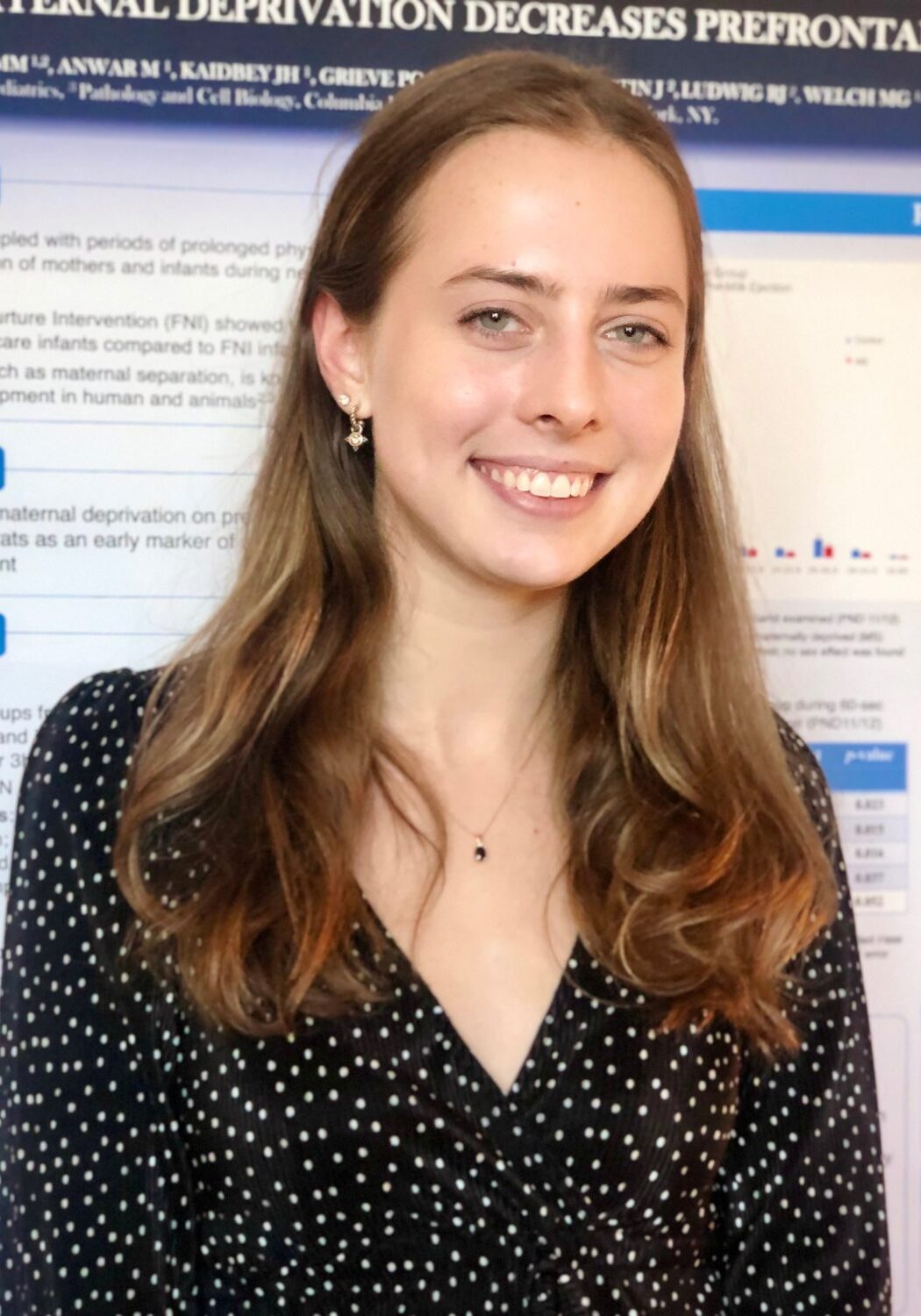
Maggie Kyle
Maggie Kyle is a research assistant who works primarily on rodent models of disrupted mother-infant connection.
Maggie came to the Nurture Science Program from Emory University, where she completed a BA in Psychology. At Emory, she spent three years working under Dr. Mar Sanchez, studying the effects of early life stress, diet, and maternal care on infant brain development in rhesus monkeys. Her research interests, which span basic science and clinical approaches to improving developmental outcomes, began with her experience working as a teaching assistant at an early intervention program for infants and toddlers with developmental disorders.
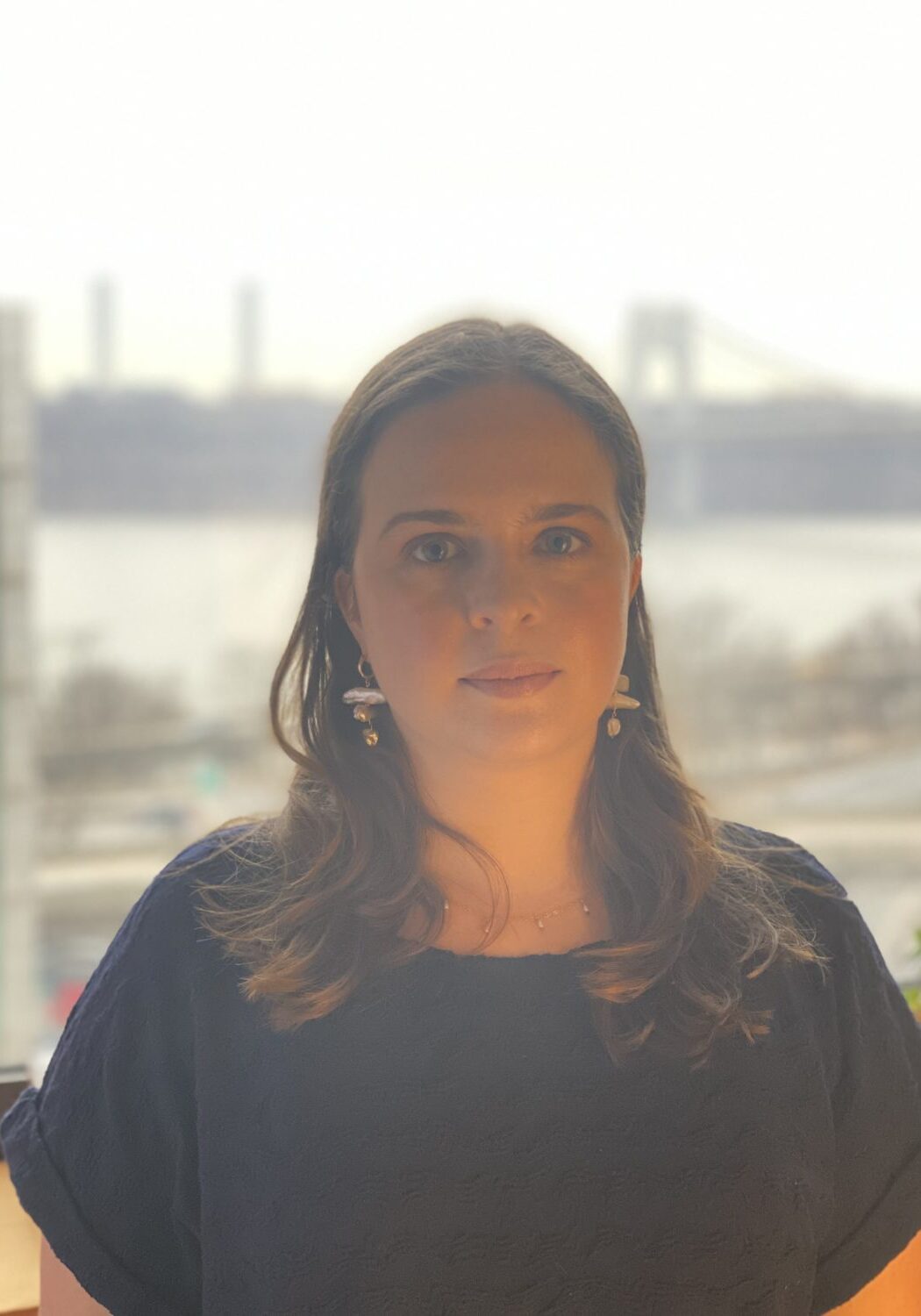
Tatyana Budylin Behring, Ph.D.
Tatyana Behring is a postdoctoral research scientist studying functional connectivity in regions of the brain involved in emotional regulation in rats. Her goals are to investigate the relationship between maternal separation and local field potential coherence between the prefrontal cortex and basolateral amygdala. She is interested in manipulating the prelimbic-basolateral amygdala circuit using optogenetics. Before starting to work in the Developmental Neuroscience and Nurture Science Programs she earned her PhD at the CUNY Graduate Center studying the role of the 5-HT1A-R on postnatal hippocampal neurogenesis and behavior in mice.

